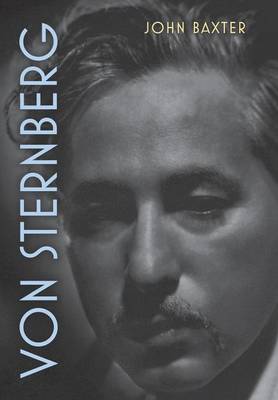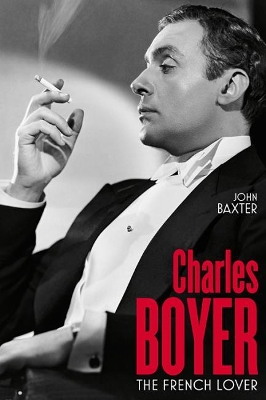Screen Classics
2 total works
Belligerent and evasive, Josef von Sternberg chose to ignore his illegitimate birth in Austria, deprived New York childhood, abusive father, and lack of education. The director who strutted onto the set in a turban, riding breeches, or a silk robe embraced his new persona as a world traveller, collected modern art, drove a Rolls Royce, and earned three times as much as the president. Von Sternberg traces the choices that carried the unique director from poverty in Vienna to power in Hollywood, including his eventual ostracism in Japan. Historian John Baxter reveals an artist few people knew: the aesthete who transformed Marlene Dietrich into an international star whose ambivalent sexuality and contradictory allure on-screen reflected an off-screen romance with the director.
In his classic films The Blue Angel (1930), Morocco (1930), and Blonde Venus (1932), von Sternberg showcased his trademark visual style and revolutionary representations of sexuality. Drawing on firsthand conversations with von Sternberg and his son, Von Sternberg breaks past the classic Hollywood caricature to demystify and humanize this legendary director.
In his classic films The Blue Angel (1930), Morocco (1930), and Blonde Venus (1932), von Sternberg showcased his trademark visual style and revolutionary representations of sexuality. Drawing on firsthand conversations with von Sternberg and his son, Von Sternberg breaks past the classic Hollywood caricature to demystify and humanize this legendary director.
For generations of film and theatre audiences, Charles Boyer was the archetypal Frenchman - cultured, courteous, seductive, yet never quite at home in a culture not his own. Even his murmuring baritone voice echoed that loss, giving him the very essence of romance. While one might have expected that the real-life Boyer was a playboy and serial seducer, in reality, he was intensely private, thoughtful, and fidelitous in love - and very professionally astute.
The Great Lover is the first biography of Boyer to exist in English in almost forty years. In an insightful analysis of Boyer's choice of roles during and after World War II, author John Baxter reveals how Boyer, realizing his accent would always mark him as an outsider, both embraced and subverted that identity. Baxter relates how Boyer established himself in the theatre and cinema of France, confidently transitioning from silent film to sound and making a name for himself as a romantic leading man in Hollywood through the early 1940s. During World War II, Boyer put his career on hold to become politically active on behalf of his occupied home country. Upon returning to acting, Baxter shows how Boyer adapted effortlessly to postwar character roles in both Europe and the United States. He entered television in the 1950s as producer and performer, and then remade himself as a comedy performer in the 1960s. A four-time Academy Award nominee, he was honored by the Academy only once for his activities on behalf of France during World War II. Far from clinging to the performances that made him famous, Boyer showed a readiness to break the mold. Yet above all, Baxter argues that Boyer's greatest achievement lies in being the embodiment of exiles everywhere.
The Great Lover is the first biography of Boyer to exist in English in almost forty years. In an insightful analysis of Boyer's choice of roles during and after World War II, author John Baxter reveals how Boyer, realizing his accent would always mark him as an outsider, both embraced and subverted that identity. Baxter relates how Boyer established himself in the theatre and cinema of France, confidently transitioning from silent film to sound and making a name for himself as a romantic leading man in Hollywood through the early 1940s. During World War II, Boyer put his career on hold to become politically active on behalf of his occupied home country. Upon returning to acting, Baxter shows how Boyer adapted effortlessly to postwar character roles in both Europe and the United States. He entered television in the 1950s as producer and performer, and then remade himself as a comedy performer in the 1960s. A four-time Academy Award nominee, he was honored by the Academy only once for his activities on behalf of France during World War II. Far from clinging to the performances that made him famous, Boyer showed a readiness to break the mold. Yet above all, Baxter argues that Boyer's greatest achievement lies in being the embodiment of exiles everywhere.

